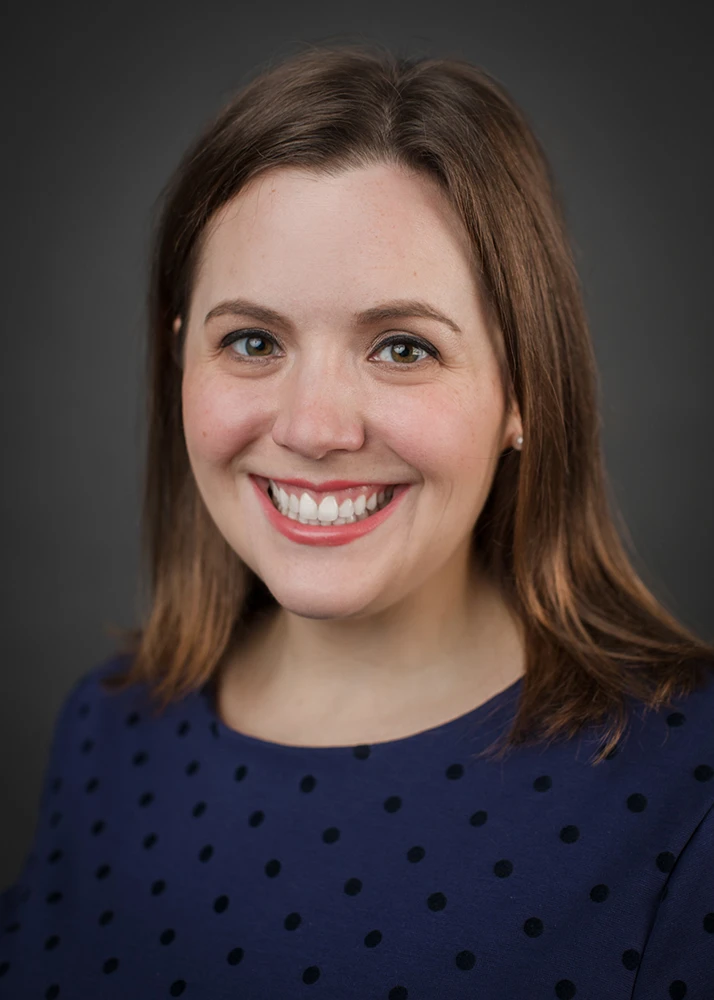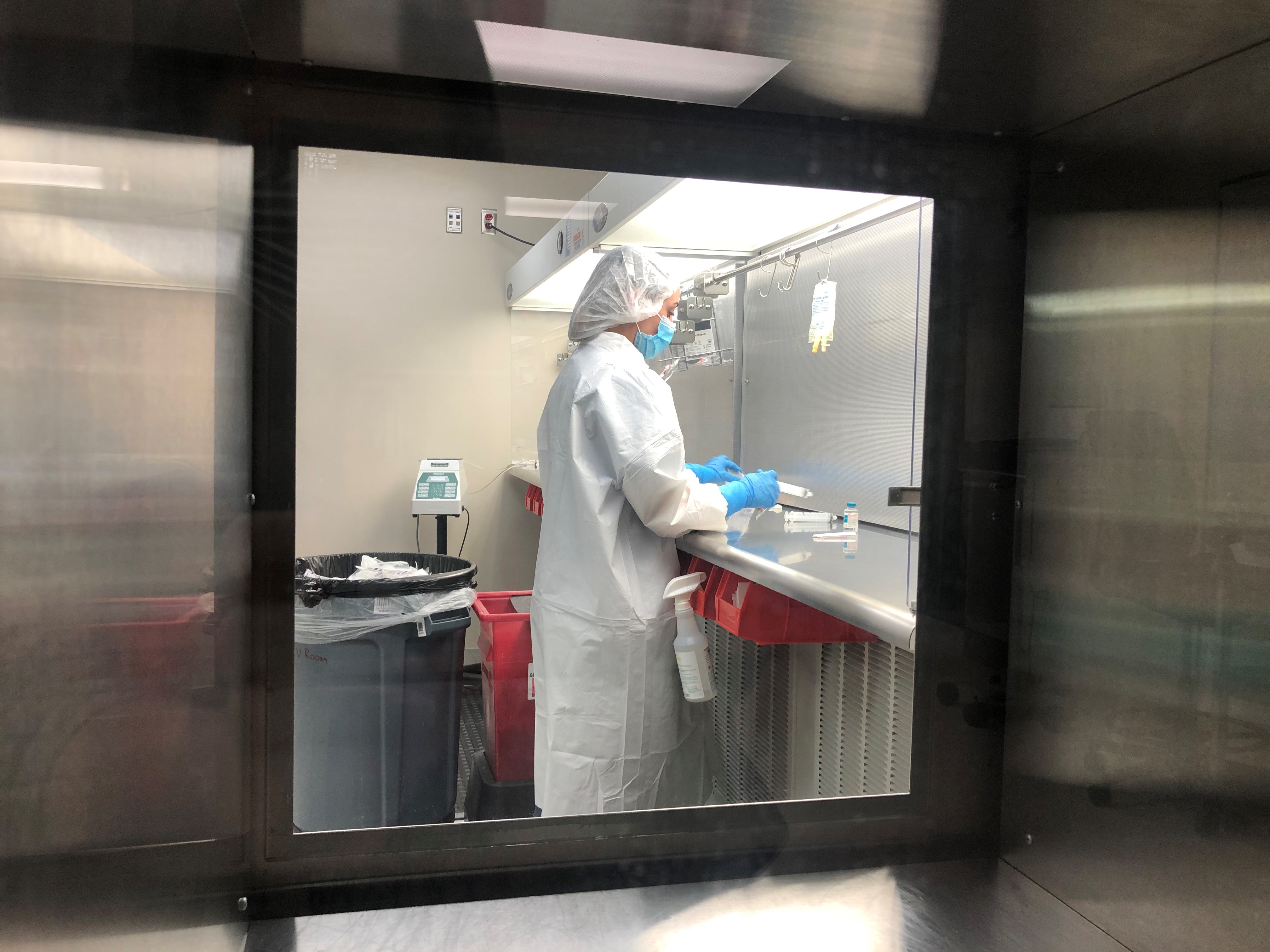





Inspiring Stories
Unsung Heroes of COVID-19: Pharmacy Technicians on Front Lines of Vaccinations
Published: March 12, 2021
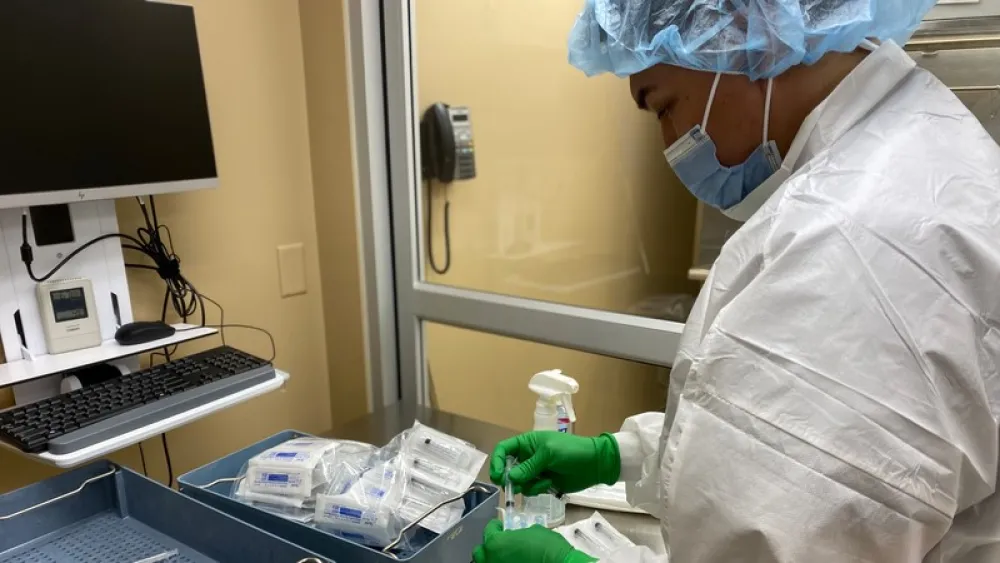
When COVID-19 cases peaked at Methodist Hospital, pharmacy technician Megan Hempel thought about how every IV bag represented a patient.
“It was very sad seeing the uptick in how many bags I’d have to make in a day and knowing these patients were here with no family – especially when I had certain patients on four or five different paralytic or sedation medications,” she said. “It really did break my heart.”

Working full-time in the pharmacy’s IV room, Hempel never interacted with COVID-19 patients but still became attached to their outcomes.
“It’s a weird feeling when you see the same name come across the printer a lot,” she said. “It’s like you know them, but you never meet them.”
Methodist Fremont Health pharmacy technician JP De La Cruz (pictured above) also felt that care and concern for patients he never met, becoming anxious as some of them reached their final dose of the antiviral medication remdesivir. He’d ask the nurses how they were doing, knowing their medication options were dwindling.
“I didn’t know the patient, but I’d always ask if they were getting better,” he said.
Methodist’s pharmacy technicians are among the unsung heroes of the COVID-19 pandemic – health care workers saving lives behind the scenes. While preparing medications and IV bags for entire hospitals, pharmacy technicians saw their workload surge as COVID-19 hospitalizations increased. And as 2020 drew to a close, they were responsible for another critical task they saw as a privilege – vaccinating an entire health system.
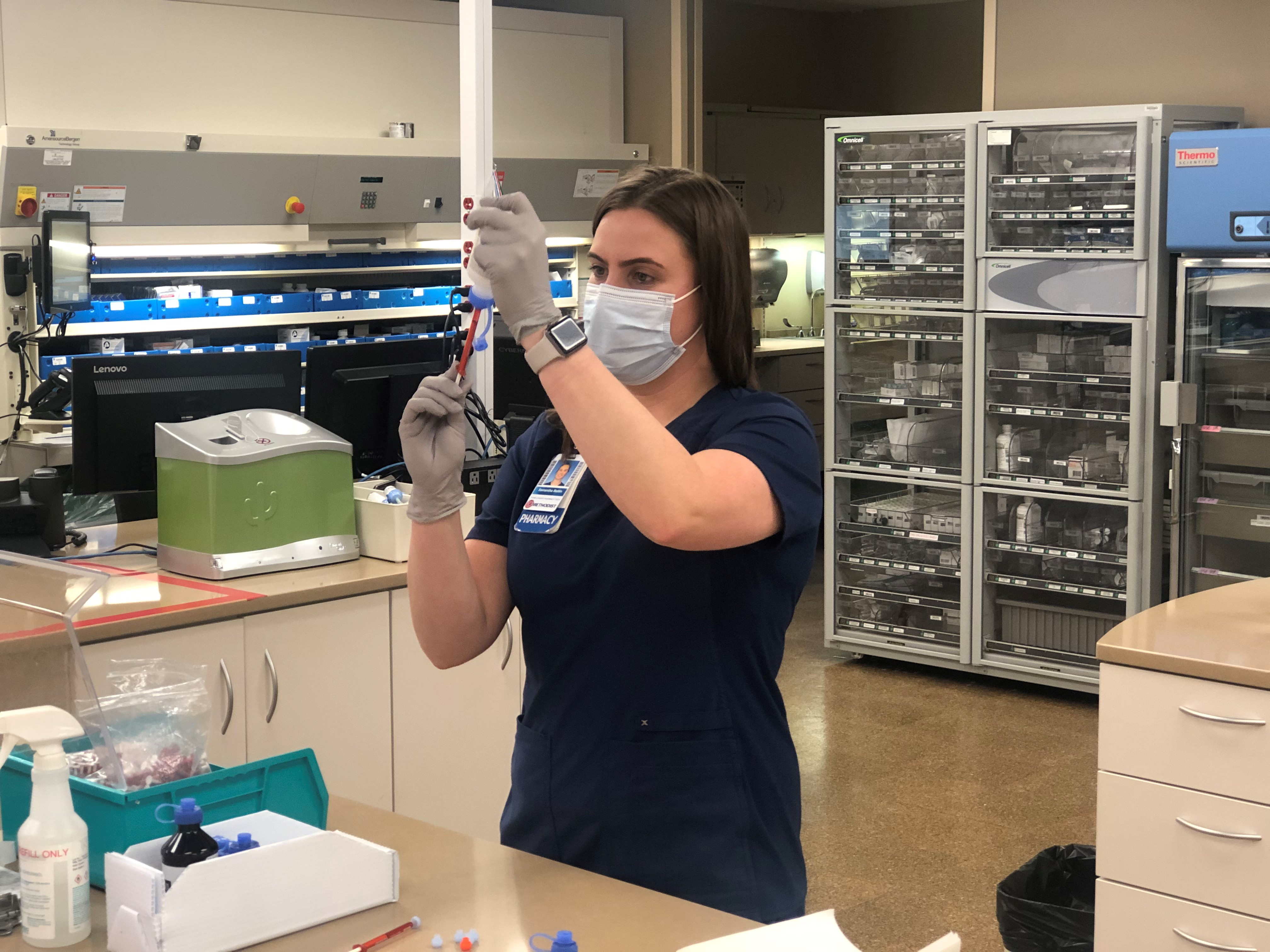
Pushing Each Other
Pharmacy technician Samantha Bettin, the team lead at Methodist Women’s Hospital, started her health care career as a casual certified pharmacy technician and over the years grew into the leadership position she’s in today.
“I love the people I work with, the department and everything that we do,” she said.
In addition to preparing medications and IV bags, pharmacy technicians deliver medications, refill cabinets, troubleshoot with nurses and work with pharmacists on day-to-day needs.
At Women’s, the technicians have a unique responsibility – filling total parenteral nutrition (TPN) bags for patients on nutrition support at all four of Methodist Health System’s hospitals. Before the pandemic, Bettin said, they would pump eight adult TPNs on a normal day – each TPN taking 15 to 30 minutes to complete. When COVID-19 hospitalizations peaked, they would need to pump up to 24 adult TPNs in a day.
On top of the increased workload, Bettin said that when the pandemic started, the hospital pharmacies had still been dealing with the effects of the medical supply chain disruption caused by Hurricane Maria in 2017.
“We were already trying to figure out how to make things work and get the products that we needed to deliver patient care,” she said. “Things were looking up, and then the pandemic hits, and we’re back to where we started. We can’t get gloves. We can’t get needles. We can’t get syringes. We can’t get masks and bonnets.”
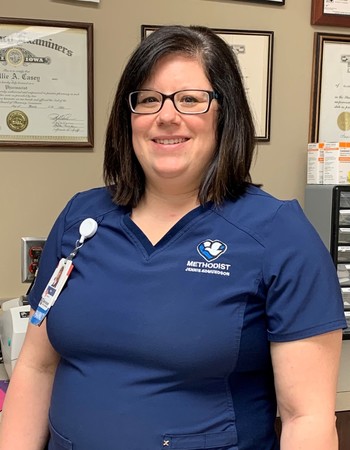
Pharmacy technician Amy Freeman, the pharmacy purchaser at Methodist Jennie Edmundson Hospital, said that medication shortages have also been an issue during the pandemic.
“It’s been a struggle,” she said. “Some days, some medications were really hard to get, and we had to work together as a health system to share our ideas and determine who could get what.”
But they’ve gotten through it with communication and teamwork.
“I’m proud of our teamwork,” Freeman said. “When cases were really high, we were struggling, but we all pulled together and worked as a team to get the patients taken care of. We were maybe stressed, but we worked together.”
“It’s been challenging but rewarding,” Bettin said. “We’ve all been pushed to a point where we say, ‘Can we go further? Can we do more?’ And everybody answers that call. That’s what we’re trained to do. That’s what we want to do. And that’s why we work in health care.”
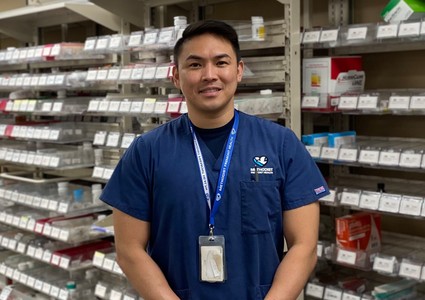
“I Know We’re Saving Lives”
“It’s momentous,” De La Cruz said about the arrival of the COVID-19 vaccine at the end of last year.
Methodist began vaccinating its health care workers in December, and the health system’s pharmacy technicians were charged with drawing up the doses for their colleagues and friends. While the Moderna vaccine was easier to handle, the Pfizer vaccine required extra steps of being thawed out and then reconstituted with sodium chloride. The doses needed to be precisely drawn up in syringes and administered in a certain time frame.
“To be honest, it was a little nerve-wracking – knowing you cannot mess up on a vial,” Hempel said. “What they send us, we have to use.”
“I can still remember the first time I drew it up,” De La Cruz said. “I was very, very careful. When you make IVs all the time, it’s second nature to you. But when Pfizer came in and I was drawing it up, I was like, ‘This is it. Oh my God. We have something now.’”
But being able to hold the vaccine vials in their hands after almost a year of working in a pandemic?
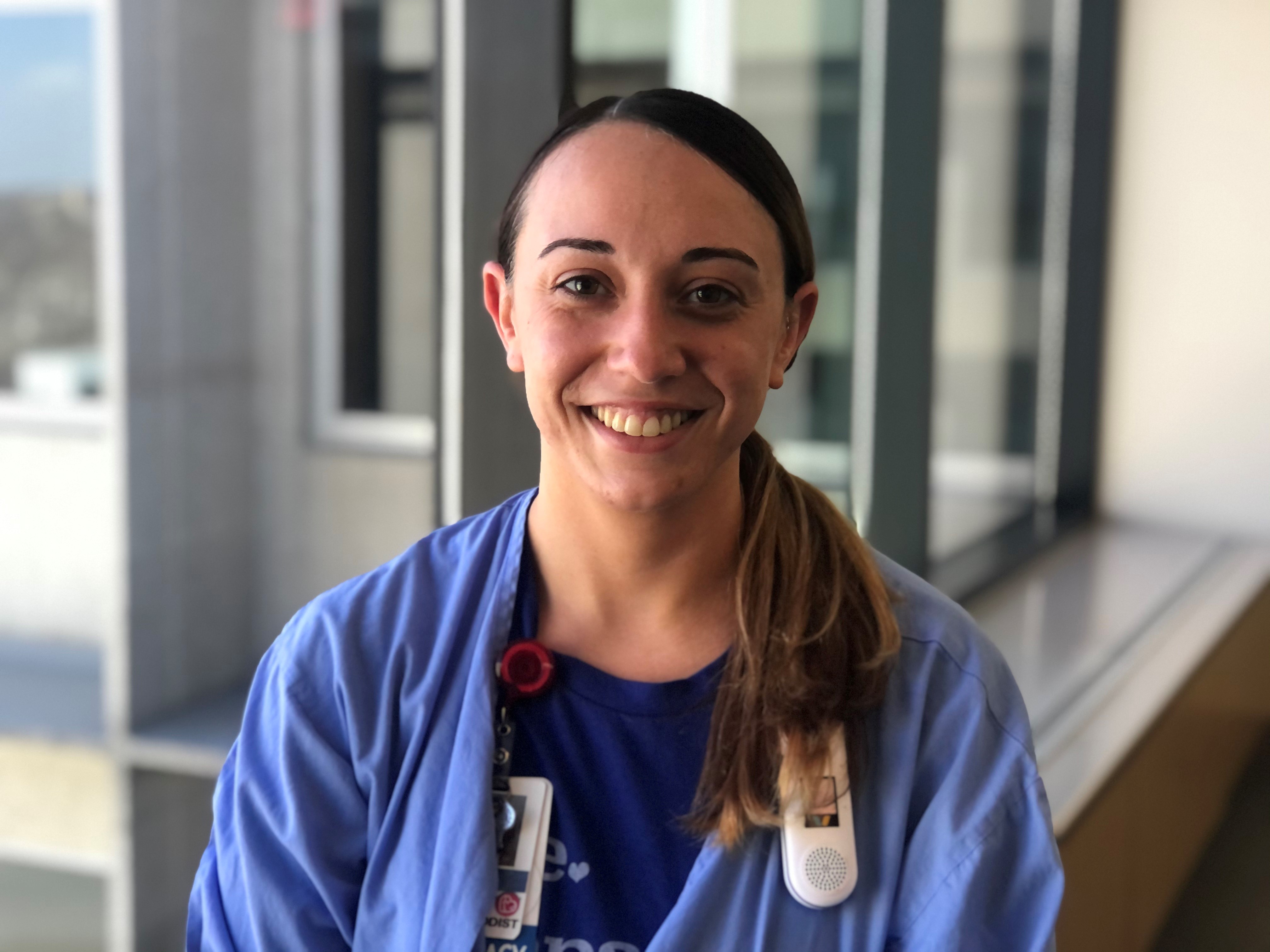
“It was very, very cool,” Bettin said. “That’s such a lame word to use for it, but it is the coolest thing. I reconstituted the vials that were used when I got my vaccine. So I reconstituted those vials myself and drew up the dose myself. The only thing I couldn’t do was administer it to myself.”
They sometimes drew up hundreds of doses in a day – on top of their regular workload. And in the end, they helped vaccinate over 6,500 coworkers.
“It felt very good knowing I was able to help others,” Hempel said.
Throughout the pandemic, Freeman and Hempel have learned to not take work stress home. Bettin learned how much she appreciates her coworkers and their encouragement. And De La Cruz has learned how resilient he is.
“I’m proud of what we do – of what I do here,” he said. “Maybe we don’t get recognized or seen all the time, but I know deep inside I’m making a difference. I know it. I know we’re saving lives.”
More Resources
- Read about more unsung heroes of the COVID-19 pandemic: language interpreters.
- Read more stories and updates on the COVID-19 pandemic.
- Learn more about what you should and shouldn’t do after COVID-19 vaccination.

